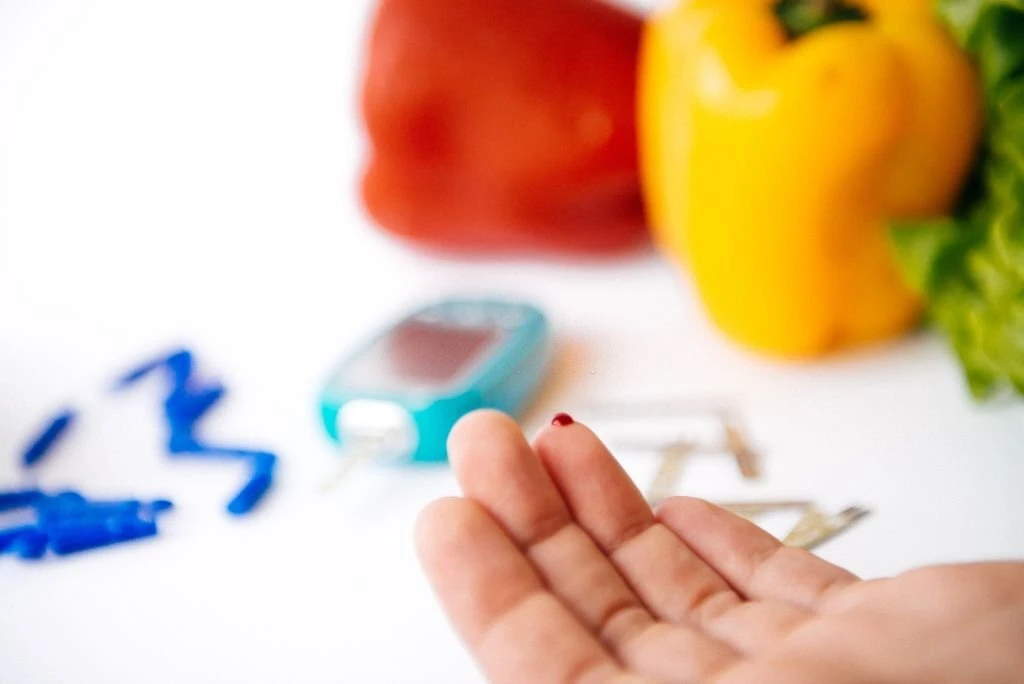Individuals afflicted with diabetes must exercise meticulous vigilance over their dietary choices. While vegetables, fruits, and whole grains constitute fundamental components of a diabetes-oriented regimen, meal plans are meticulously tailored to each person based on an intricate interplay of factors, encompassing blood sugar levels, age, and various facets of lifestyle.
The wealth of nutrients embedded within these food categories is a well-acknowledged fact in the context of vegetables and fruits. Nonetheless, individuals grappling with prediabetes or diabetes must exercise caution when it comes to starchy vegetables and fruits characterized by a pronounced glycemic index.
Herein arises the need for an all-encompassing, technology-infused, and rigorously substantiated Diabetes Care Program.
And what of the unassuming banana, a staple fruit that graces our plates and remains economical and ubiquitously available across the Indian subcontinent? Does it deserve a place in the dietary arsenal of those contending with diabetes? Let us embark on a journey to discern the truth.
Curious Tidbit: Were you aware that more than 300 distinct banana varieties flourish globally, yet only a meager 15-20 find commercial cultivation in the Indian subcontinent?
The Nutritional Tapestry of Bananas
In the realm of bananas, the concept of potassium reigns supreme. This fruit constitutes an abundant reservoir of potassium and is especially recommended for individuals grappling with elevated blood pressure.
Let us peruse the nutritional tableau of ripe Musa paradisiaca:
Nutrient Quantity per 100 g
Total Fiber 2.33 g
Carbohydrates 23.41 g
Calcium 8.73 mg
Magnesium 43.79 mg
Phosphorus 33.63 mg
Potassium 335 mg
Bananas further endow us with a bountiful supply of vitamins B6 and C.
Much speculation shrouds the safety of banana consumption for those with diabetes or prediabetes. Does this luscious fruit wield an influence over one’s blood sugar levels? The answer lies within the parameters of the banana’s glycemic index.
In consonance with the International Glycemic Index Database, ripe bananas present a low GI, hovering around the range of 48 to 51. Slightly under-ripe counterparts exhibit an even lower GI, approximately 42. Despite their moderately elevated carbohydrate content, bananas house carbohydrates in the form of resistant starch when unripe.
Resistant starch resists enzymatic breakdown within the small intestine, thus circumventing a surge in blood glucose levels. Additionally, this starch undergoes gradual digestion, conferring a sense of satiety that endures.
The Boons of Banana Consumption
Owing to the cornucopia of nutrients encapsulated within this fruit, bananas extend an array of health advantages, encompassing:
- Cardiovascular Well-being: Given their status as a potassium-rich foodstuff, bananas qualify as heart-healthy victuals, instrumental in blood pressure regulation and the mitigation of cardiovascular risk.
- Facilitation of Digestion: The abundant dietary fiber content in bananas fosters optimal digestive function while regularizing bowel movements. It serves as a potent remedy against constipation, acid reflux, and ulceration.
- Energizing Reservoir: Embodying a profusion of healthful carbohydrates, bananas emerge as an immediate source of energy. Their vitamin B6 content further augments metabolic processes, enhancing cognitive function.
- Immunological Support: Bananas stand as a trove of vitamin C, a potent antioxidant fortifying the immune system against adversity.
- Skin Vitality: The vitamin C content in bananas additionally stimulates collagen production, an indispensable protein that sustains healthy skin and tresses.
The Verdict on Bananas in Diabetes Management
Notwithstanding their commendable standing on the glycemic index (GI) and glycemic load (GL) scales, bananas harbor a substantial carbohydrate payload. Consequently, individuals grappling with diabetes should incorporate this fruit into their dietary regimen only after securing the counsel of their nutritionist and diabetologist.
Given the constraints imposed by prediabetes and diabetes, judicious moderation in banana consumption remains sage counsel. The American Diabetes Association (ADA) underscores the potential inclusion of low-GI fruits in diabetes-oriented diets, provided such consumption is judiciously balanced within a comprehensive dietary framework emphasizing moderation.
Prudent Measures for Safeguarded Banana Integration into a Diabetes Diet
For those permitted to incorporate bananas within their diabetes-centric dietary matrix, the following prudent strategies ensure optimal health outcomes:
- Synergistic Pairings: Marry the banana with a healthful fat or protein source, such as walnuts, sunflower seeds, or yogurt.
- Maturity Matters: Be mindful of the banana’s glycemic index, which escalates as the fruit ripens. Opting for an under-ripe banana in culinary creations like stir-fries or curries emerges as a judicious alternative to partaking in the ripened variant boasting a higher GI.
- Portion Prudence: Exercise discretion in portion sizes or opt for diminutive bananas to exercise controlled consumption.
- Baking Enhancement: Explore the potential of bananas as a healthier alternative to sugar in baked delicacies.
Conclusion
Bananas, unassuming in their appearance, stand as versatile, cost-effective, and universally accessible assets throughout the Indian landscape. They emerge as repositories of essential nutrients, ranging from vitamins and minerals to dietary fiber. Moreover, they navigate the realm of low glycemic indices with aplomb.
Nevertheless, the preponderance of carbohydrates within bananas necessitates a comprehensive dialogue with a nutritionist prior to their inclusion in a diabetes-conscious diet. An understanding of the intricate interplay between bananas and blood sugar levels becomes paramount for informed dietary decisions.

